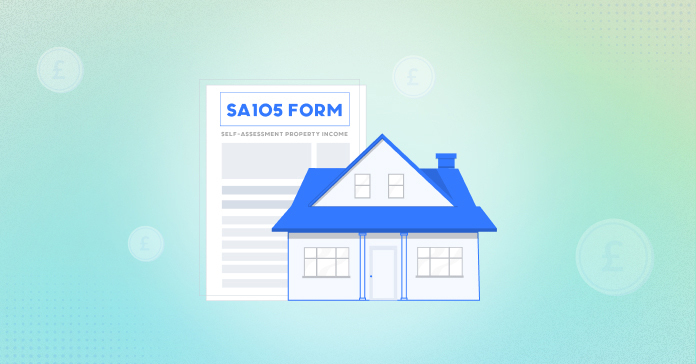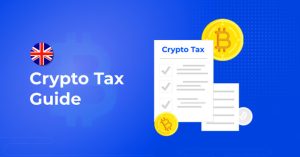Navigating property income tax can be challenging, especially for property investors and self-employed individuals. One key document to familiarise yourself with is the SA105 Form. This comprehensive guide will explain everything you need about the SA105, ensuring you’re fully prepared for your self-assessment. Understanding the SA105 is essential for maximising your tax efficiency and confidently navigating property tax regulations. Get ready to tackle your property income tax obligations effectively!
What Is the SA105 Form?
The SA105 Form is an extra tax return form used to report property income to HMRC. It is an essential part of the self-assessment process for property owners and buy-to-let investors. By accurately completing this form, you inform HMRC about your earnings from rental properties, ensuring you are compliant with UK tax laws.
The SA105 Form is essential for anyone earning property income. Submitting this form accurately is crucial, as failing to do so can lead to penalties and interest on unpaid taxes. Understanding how to complete the SA105 Form correctly can help you avoid costly mistakes and ensure compliance with tax regulations. Don't underestimate the importance of this form—proper submission is key to managing your property income effectively.
Can You Fill Out the SA105 Form Online?
Yes, you can easily fill out the SA105 Form online for your self-assessment. The digital submission process is both simple and convenient, allowing you to complete your tax return from the comfort of your home. HMRC's online system provides clear guidance through each section of the SA105 Form, ensuring you include all necessary information.
Submitting the SA105 Form online has the added advantage of instant confirmation. After you submit, you'll receive an acknowledgement from HMRC, giving you peace of mind that your tax return is filed correctly. To ensure a smooth process, make sure you have all required documents ready before you begin. Streamline your self-assessment today by opting for online submission!
Who Should Fill Out an SA105 Form?
The SA105 form is essential for individuals who need to report their income from self-employment on their tax return. This form is typically required for sole traders and business owners, allowing them to accurately declare their earnings and expenses. If you’re aiming to stay compliant with tax regulations and maximise your deductions, understanding who needs to complete the SA105 is crucial. Whether you're a freelancer, contractor, or running a small business, filling out this form correctly can help streamline your tax process.
If you earn income from rental properties, you need to complete the SA105 Form. This includes individuals who own buy-to-let properties, holiday homes, or even those who rent out a room in their primary residence. It's essential to report all types of property income to avoid any legal complications.
However, not everyone needs to fill out this form. As per property income allowance rules, If your total property income is below £1,000, you might be eligible for the property income allowance, which exempts you from reporting this income. Always consult with a tax advisor to understand your specific obligations.
Understanding Exceptions to the SA105 Form
The SA105 Form is essential for reporting most property income, but there are important exceptions to consider.
- If your property income is low and falls within the property income allowance, you may not need to submit this form.
- Additionally, if you occasionally rent out a portion of your home, you could be eligible for the Rent-a-Room Scheme, which has its guidelines.
It's vital to recognize these exceptions to minimize unnecessary paperwork and ensure compliance. Consulting with a tax advisor can help clarify whether you are required to file the SA105 Form based on your specific situation. Understanding these nuances can save you time and effort while keeping you informed about your tax obligations.
How to Complete the SA105 Form
Completing the SA105 Form requires a systematic approach. Begin by gathering all necessary documents, such as rental income receipts, expense records, and mortgage statements. Then, carefully fill out the form, providing comprehensive details about your income and expenses related to the property.
Before submitting, thoroughly review all entries for accuracy, as errors can result in delays or penalties. If you have any uncertainties about specific sections, consider consulting a tax professional to ensure your form is completed accurately.
Essential Tips to Avoid Common Mistakes When Filing the SA105 Form
Filing the SA105 Form can be challenging, and many individuals make common mistakes that can lead to issues. One frequent error is underreporting income by not including all rental payments received. Another common mistake is overclaiming expenses, which may trigger an HMRC audit.
To steer clear of these pitfalls, it's crucial to maintain thorough records of all transactions related to your rental property. Consistently update your financial records and review them before filling out the SA105 Form. This practice not only ensures accuracy but also helps you comply with tax regulations effectively. By staying organized and informed, you can simplify the filing process and minimize the risk of errors.
SA105 Form Submission Deadlines
It's crucial to be aware of the submission deadlines for the SA105 Form. The deadline for online submissions is January 31st following the end of the tax year. For paper submissions, the deadline is October 31st. Missing these deadlines can result in penalties, so mark your calendar and plan accordingly.
Timely submission not only avoids fines but also ensures any refunds due are processed promptly. Always aim to submit your tax return well before the deadline to account for any potential issues.
How Debitam Can Simplify Your Tax Reporting
Debitam provides customized services to help individuals navigate the complexities of tax reporting, especially when completing the SA105 Form. Our team of experienced tax professionals understands the latest tax regulations and can guide you on the necessary documentation, ensuring you efficiently gather and organize your income and expenses.
By choosing Debitam, you can accurately report your property income, maximize your tax deductions, and stay compliant with HMRC regulations. We also offer expert assistance in understanding applicable exceptions and potential allowances, reducing unnecessary paperwork and stress.
With Debitam on your side, you can tackle your self-assessment with confidence, knowing you have access to expert support that streamlines the tax filing process and addresses any questions or concerns you may have. Let us help you make tax reporting easier and more efficient!













